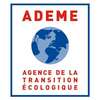3 - minute read

In February 2022 the French agency for the ecological transition (ADEME) published recommendations on the use of “neutrality” arguments in marketing and communications (Use of “carbon neutrality” argument in communications, ADEME, Feb. 2022). As net neutrality pledges are multiplying (see To pledge or not to pledge... Net neutrality, an international dilemma), the Agency underlines misleading practices in using neutrality concepts that can unfold into controversies or even legal risks facing greenwashing accusations.
The report recalls that the Climate and Resilience French law (Art. 4 bis) sets a framework for legal action against greenwashing: “when the deceptive marketing practice implies or gives the impression that a good or service is having a positive effect or is not having an impact on the environment or is less harmful to the environment than the competing goods or services, the amount of the fine may be increased, proportionate to the benefits derived from the offence, to 80 % of the expenditure incurred in the performance of the publicity or practice constituting that offence.” It also forbids an abusive usage of neutrality claims except if the advertiser respects a number of conditions. These conditions are defined in a dedicated decree currently under public consultation. They include:
- The disclosure of a decarbonation plan,
- Yearly reports on the product/service life cycle analysis
- An action plan including yearly emission reduction targets
- The nature and description of offsetting projects
- The product/service carbon footprint (before compensation) increased compared to the previous year.
The ADEME delves into neutrality semantic and shows how its usage is misleading. In fact, neutrality is commonly defined as an entity or person not taking position on a matter in a debate, a discussion or a conflict. Applied to the fight against climate change, it suggests that an entity, product or service is not part of the problem. Yet, often far in time and superficial, a growing number of carbon neutrality pledges are adding to the confusion.
A company pledging to neutrality or stating that its products/services are carbon neutral is issuing misleading claims acording to the Agency. The carbon accounting approach of neutrality partly relies on compensation for which multiple practices exist, unveiling a range of interpretations and quality concerns regarding offsetting practices. The report recalls that offsetting is not a panacea and the best ton of carbon compensated is the one not emitted in the first place.
It stresses on the consequences and side effects of neutrality pledges. They can:
- Delay behavioral changes by removing the psychological/moral discomfort linked to the knowledge of a product/company’s carbon footprint
- Delay necessary business model changes
- Entail in rebound effects
- Trigger legal actions.
The ADEME therefore warns: “For your claims to be credible, they must be accompanied by all relevant evidence, for example, on a dedicated page on your website: calculation methodology, GHG results, reduction strategy, information on sequestration projects, possible labelling…”
It calls for companies not to focus communications on their apparent carbon accounting neutrality but rather on transparently, proportionately and distinctively communicating their contribution to collective carbon neutrality and particularly how they massively reduce their own carbon emissions, help others decarbonate and ultimately use compensation.
To conclude, “Net Neutrality” should be used cautiously, or it risks suggesting that it is possible to efficiently fight climate change without drastically reducing carbon emissions (all scopes included) or changing collective and individual behaviors. The ADEME provides some guidance around communication (see the table below).
Table: inappropriate and appropriate statements on carbon neutrality according to ADEME


Reminder on AMF’s conclusions on companies and carbon neutrality
The French financial market authority (AMF) published its initial conclusions on companies and carbon neutrality in October 2021. It sets out best practices for companies to develop demanding/robust net neutrality approaches:
-
- Knowing, understanding and taking into account, in the carbon neutrality strategy, all relevant and significant categories of the company’s emissions
- Enabling a decrease in GHG emissions in absolute terms, the aim being to reduce the concentration of GHG in the atmosphere
- Bringing the objectives in line with most recent scientific knowledge via an ACT (Assessing low carbon transition) assessment or validation by the SBTI, making it possible to define a decarbonization pathway (or transition plan) in accordance with the objectives of the Paris Agreement
- Defining the target set for 2050 at the latest in terms of intermediate targets, with an initial short-term stage if relevant, in addition to a target for 2030
- Dynamically revising targets, according to individual and collective progress and advances in scientific knowledge
- Targets should be associated with detailed transition plans (as specified by the EU in Corporate Sustainability Reporting Directive).
The regulator proposed sound measures to be considered by companies setting net-zero targets. One wonders if these measures can be the base of further regulations and potential probes.
The Net Neutrality concept being nascent, its ownership by both private and public entities was quite clumsy. Now that standards and guidelines appear, misleading pledges might lead to greenwashing accusations blooming around the globe.

